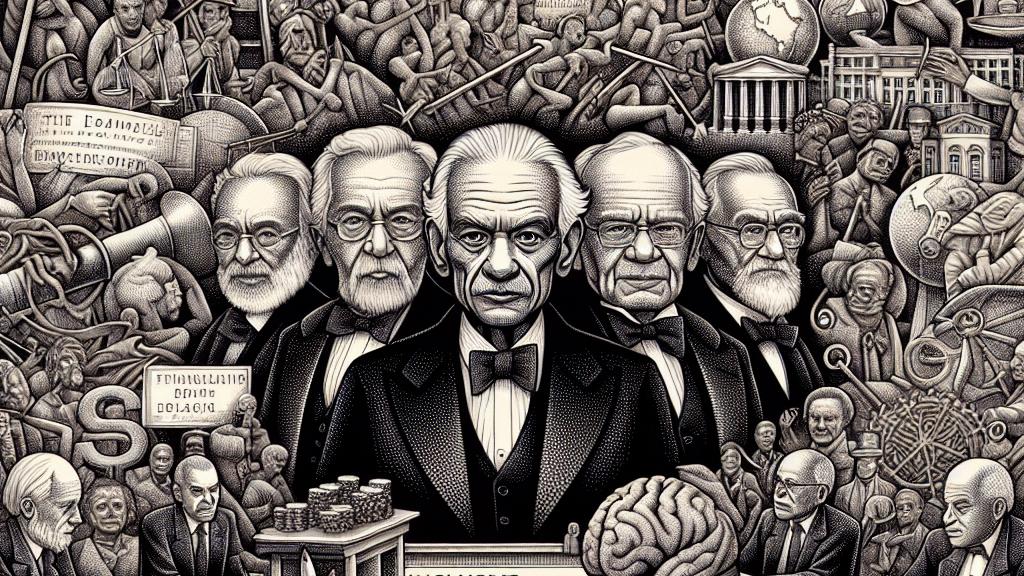Nobel Prize in Economics Awarded for Research on Wealth Inequality
Overview
- Acclaimed economists Acemoglu, Johnson, and Robinson win the Nobel Prize for their insightful research on wealth inequality.
- Their findings uncover a crucial link between societal institutions and the prosperity of nations.
- The research emphasizes how colonial histories shape contemporary economic disparities, urging the necessity for significant reform.

Introduction to the Celebrated Nobel Laureates
On October 14, 2024, the prestigious Nobel Prize in Economic Sciences was awarded to three prominent economists: Daron Acemoglu, Simon Johnson, and James Robinson, all of whom are widely recognized figures in their field, teaching in the United States. Their groundbreaking research reveals striking connections between historical political and economic systems set in motion by European colonization and the wealth inequalities we observe in today's world. The Royal Swedish Academy of Sciences recognized their essential contributions, emphasizing that strong and inclusive societal institutions lay the groundwork for national prosperity. This achievement not only shines a light on complex economic relationships but also serves as a powerful reminder of the ongoing impact of historical injustices.
Dissecting the Complexities of Wealth Inequality
In contemporary America, the chasm of wealth inequality has reached staggering proportions, making it one of the widest gaps among developed nations. Acemoglu, Johnson, and Robinson meticulously analyze the roots of this inequality, weaving a compelling narrative that links past exploitation to present outcomes. Consider the fascinating case of Nogales, a city intricately divided by the U.S.-Mexico border. On the U.S. side, residents benefit from robust institutions that empower them with greater economic opportunities, affording them the chance for upward mobility. Meanwhile, those in Mexico confront a markedly different reality—restricted governance and limited political influence stifle their potential. This striking contrast vividly illustrates how the quality of institutional frameworks can either uplift or obstruct communities, underscoring the necessity for strong, inclusive institutions that promote growth along with equitable distribution of resources.
Global Lessons: Rethinking Wealth Distribution
At the core of the Nobel laureates' discoveries is the compelling message that wealth disparities arise not solely from individual actions but are deeply rooted in historical injustices and institutional quality. Much like seeds planted in different soils, nations with solid, inclusive institutions—those that hone the rule of law and guarantee equal economic freedoms—tend to flourish, reflecting significant growth and prosperity. In stark contrast, countries where institutions function to exploit rather than uplift find themselves ensnared in vicious cycles of poverty and inequity. This sobering reality presents a crucial lesson for policymakers around the globe: dismantling systemic barriers and fostering inclusive institutions is vital for creating surroundings where all individuals have the chance to thrive, ultimately paving the way for a more just and equitable future.

Loading...